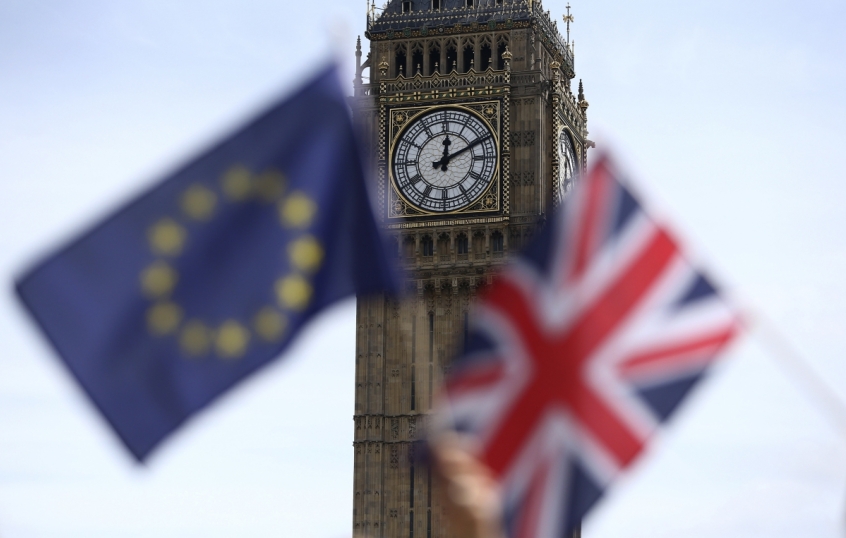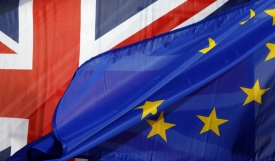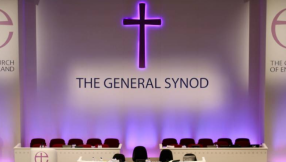
Over the course of the next hours and days, we are going to read and hear a lot of words about the need for the UK to come together as a nation. We are going to be reminded that we have more in common than what divides us and that it's time to unite. Many of these sentiments will be offered sincerely with good motive.
But there is a huge ongoing problem that the referendum has powerfully exposed.
Most of us simply do not have the tools or contexts where we can meaningfully "come together". There is a gaping cultural divide. We may express a passion for integration, but there are huge barriers to it taking place. We are ghettoised by geography and class in different areas of the country, or separate areas of the same town.
For those of us on either side of the EU vote left wondering why the other half of the country just don't "get it", let's ask ourselves how much time we spend building relationship with those on the other side of that cultural divide. One thing is for sure – it's hard to do it on social media. It's inevitably an echo chamber for the views of people who are rather like us. Even if we had some disagreements, it was hardly an apt space for reasoned, respectful discussion. Many abandoned social media in disgust in the weeks running up to the vote.
So where might some answers lie? I'm not sure I have them, but I do know my story.
Imperfect beauty
In 2008 I had the privilege of standing in a by-election for Lambeth council. The ward was called Vassall and it stole a place in my heart. Sitting between Brixton and Camberwell, it contained about 15,000 people, but had some serious problems.
It boasted more CCTV cameras than the whole of Edinburgh and 36 per cent of residents had no qualifications of any description. People here were not being dealt a head start in life.
As I wandered around the estates, knocking on doors, I started to realise something else. There weren't too many other people knocking on these people's doors. These folks didn't get too many opportunities to tell their stories and feel connected to the big picture. As I listened to tales of their incredible struggles and impressive effort on behalf of their families, I was suddenly very humbled. The honest reality was that someone like me would probably not be knocking those doors unless I was looking for their vote (at that time I didn't live on an estate). In a 'eureka' moment, I experienced the imperfect beauty of democracy, acting like a magnet to bring society at least a little closer together – before I deigned to represent this area I had to experience to some extent what life was like there.
It struck me what an incredible missional opportunity the church is so often missing out on. The conversations I got into on the doorsteps were incredible. When people haven't had anyone listen to them in a while, it's amazing how they will download so much of their hurt and their heart even to a stranger.
It was inspiring to work with local councillors to help folks get simple things like guttering, bins, heating or playgrounds sorted. I also experienced how thankless the role of a local councillor can be. It struck me that much of what I saw going on was incredibly Christ-like in its humble service.
Estate life
That experience was one of the reasons my wife Jen and I then intentionally moved onto the nearby Doddington Grove council estate. If there is one thing we have learnt from living there it's that trust and gradual persuasion only happen through long-term, patient relationship building. Living on the estate and being involved in local politics are the two things that have opened my eyes to how "the other half live". We were involved in a genuine sharing of life that changed us for the better and hopefully left some others better off too. We learnt a lot about loyalty, family, and truth-telling.
You may well say, "that's just a few relationships – we're talking about a whole nation that's divided." Fair enough, but we are called to demonstrate another way. I believe the Kingdom never moves faster than the speed of relationships, yet so few of us grasp the opportunities that politics provides, or play our part in the sort of churches where folks from varied walks of life, socio-economic and ethnic backgrounds can mix.
Might this referendum experience inspire you to be part of our nation coming together for the better? Did you think "I could do better than this lot?" Then join us!
Jubilee
As we woke to the referendum result, I was enjoying the infectious morning smiles of our gorgeous five-month-old daughter, Jubilee. As our eyes connected I was reminded of why we gave her that name. It is a name that promises celebration even in the midst of present challenges, because we know that there is a day coming when the land will be levelled, debts written off and captives freed. The arc of history bends towards it. However, we don't just wait passively for that day. We actively pray and work for it too. Even all those years ago, in setting out the Jubilee principles God had spotted something intrinsic to human nature – that left to our own devices we would revert to selfishness and nationalism. That power and wealth would inevitably trickle up toward the powerful and the wealthy, widening the gap between rich and poor. That's why Jubilee was necessary then, and why its spirit is all the more essential now. Jubilee brought people together to celebrate their shared life. It reconnected people with their land and with one another. It nudged people into relationships that made no sense to the market. It reminded them that what they shared as God's children was stronger than any other tribal call on their identity.
I believe our country – whether it knows it or not – is crying out for Jubilee.
So even if we fundamentally disagree with some or much of how that cry has been expressed (especially in terms of implicit or explicit nationalism), can we hear the cry? The cry of people who feel left behind. The cry of those who feel dispossessed. Will we turn our ear to them? And crucially, will we put ourselves in places where we can hear that cry up close? Will we become part of structures like local political parties and community groups that bring us into contact with people who are not like us so we can learn from each other and bridge this cultural divide? Or will we continue to pontificate in disgust from a distance?
The shootings of the last few weeks have inspired many to use phrases like #lovenothate. It has got me thinking about whether beyond the hate, the deeper problem is actually fear. Is it possible that fear is actually the opposite actor to love? After all, Scripture tells us that it is perfect love that drives out all fear. We hate those we know, but we fear those we don't know or understand. It is this vacuum of relationship that enables prejudice. Only love and relationship can cast out that fear; to make known those who are presently unknown to us, and to understand what we presently do not understand. I pray that we will know the grace we will need to step across those divides, for without divine energy none of this works. Jubilee didn't work without it. A revolution without revival goes nowhere.
So whether you are happy, sad or indifferent today, more than ever, your country needs you. It doesn't need us on social media so much. In our insecurity, that's what WE need. Our country needs us on the ground and on our knees, whether in estates, suburbs or fields, meeting its beautiful, yet broken people. Like us.
Andy Flannagan is a London-based, Irish singer-songwriter who was previously a hospital doctor. He is also the Director of Christians on the Left.














